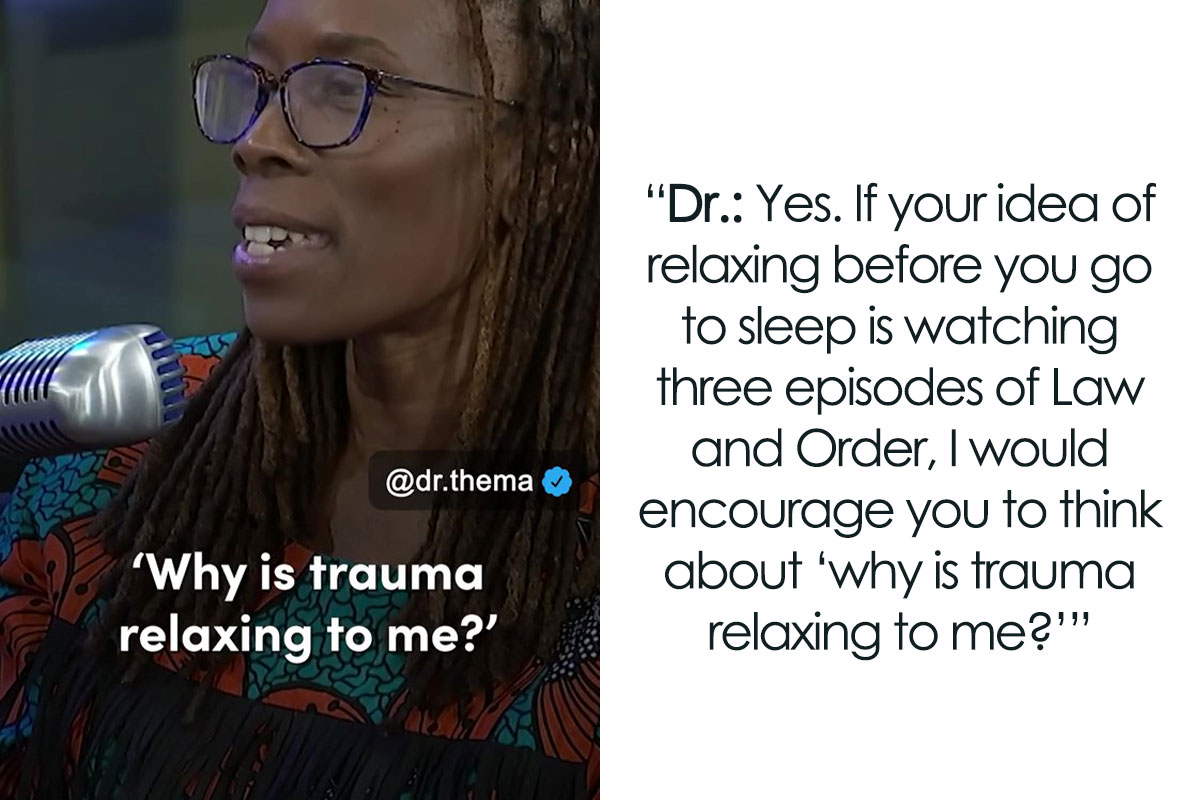
Watching True Crime Stories To Relax May Be A Red Flag, Psychologist Says
People find the strangest things relaxing or even soothing. If you were to go to YouTube, you wouldn’t even need to look far to find something like “Relaxing rain with distant artillery” ambient sounds. I’m telling you, people unwind using the most out-of-pocket things sometimes.
But, according to Dr. Thema Bryant, people should consider why they enjoy things like true crime stories right before going to bed and ask themselves “why is trauma relaxing to me?”
It may be an indication of something deeper than just a simple hobby.
More info: TikTok
We usually don’t even think why we really enjoy this or that, but what if we dug a little deeper
Image credits: cottonbro studio (not the actual photo)
Dr. Thema Bryant, the current president of the APA, came on the Mel Robbins podcast to talk about mental health and getting your power back
Image credits: dr.thema
Dr. Thema suggests that people who really enjoy true crime before bed should ask themselves why they do it
Image credits: melrobbins
She goes on to say that hearing and seeing horrible things is probably not the most relaxing thing for sleep
Image credits: melrobbins
Thema explains this as people being soothed by familiar things, in this case their past trauma
Image credits: melrobbins
She goes on to mention that, for some people, peace seems boring and that getting out of their comfort zone may be cutting back on such content
Image credits: melrobbins
Watch the original video here:
@melrobbins If your idea of “relaxing” before bed is watching a few episodes of Law & Order (or any other #truecrime show), listen up. This was just ONE of the many incredible mic drop moments 🎤 and knowledge bombs 💣 that @Dr Thema Bryant drops on the #melrobbinspodcast. Listen now!! 👉 “6 Signs You’re Disconnected From Your Power and How to Get It Back: Life-Changing Advice From the Remarkable Dr. Thema Bryant” 🔗 in bio #melrobbins #podcast #trauma #traumatok #healing #bingewatching ♬ original sound – Mel Robbins
There’s nothing wrong with enjoying true crime, as long as you stay aware of its effects
The speaker in the vid is Dr. Thema Bryant, a clinical psychology doctorate and the current president of the American Psychological Association (APA). She’s also the host of her own podcast, Homecoming, where she speaks about mental health, standing tall at 184 episodes as of writing this article.
After the bit that you just saw, she goes on to talk about how leaning into the discomfort and unfamiliarity is important. She shares an example from her own practice, where a mom couldn’t tell her daughter that she loves her, because it always seemed fake and unauthentic to her.
As it turns out, according to Dr. Thema, it was difficult for her to say it because she had never heard it herself, only seen it in movies, therefore making it feel fake to her, again tying it all to how past trauma may influence our feelings or behavior now.
If you’re interested in the complete podcast, you can find it here, while the conversation from the TikTok starts at around the 35 minute mark.
Although according to YouGov, half of Americans say that they enjoy true crime content and one in three consume it at least once a week, there may be mental health ramifications. Acenda describes the symptoms of watching too much true crime content: being wary of others, feeling scared constantly, and being fearful in your own home.
If you’re a big fan of true crime and find yourself constantly checking locks in your home, are overly jumpy at tiny noises in the home or even begin self-isolating out of fear, it’s a good sign that it’s time to lay off for a while.
Image credits: dr.thema
To get an opinion from a real fan of true crime, Bored Panda reached out to the one and only – Debbie, also known as the True Crime Diva! Her obsession with true crime started in her early 20s, with true crime literature and she’s been a fan ever since, sharing her thoughts about unsolved crimes and other bizarre happenings since 2010.
Debbie doesn’t necessarily agree with the statement shared by Dr. Thema, but thinks that it could be true for some.
“For me, trauma drove me away from true crime. In 2012, my teenage son disappeared for several days,” she mentions. You see, he had run away, but she, her husband, and law enforcement thought he had been abducted.
While they found him safe and sound not long after the fact, the uncertainty they were going through, wondering if he was alive, awful online trolls, and the entire emotional rollercoaster from that horrible experience sent her reeling away from writing in her blog at all, for over a year.
Her love for true crime started over 30 years ago: “I read Ann Rule’s book, Small Sacrifices: The Shocking True Crime Case of Diane Downs, and a People Magazine article on the Jacob Wetterling abduction.” Finally, in 2010, one murder case in particular really upset her and she decided to write about it to share her thoughts with her readers.
She finds the whole investigation process super interesting in true crime, especially DNA testing. She finds the things we can do now truly amazing compared to what we could do to solve crimes 30 or 40 years previously.
As a blogger, she loves to research missing persons’ cases and unsolved murders, bringing awareness to them, if in a small way.
According to the Diva, most people can handle their true crime obsession.
“I choose to write about it, while some host a podcast or YouTube channel. Others, however, take it too far,” she says, saying that some online creators become detectives and interfere in cases, actively harming the investigation, like the Idaho Murders or the Gabby Petito case.
They’ve received so much attention on TikTok and brought out the sleuths tenfold. Police have to warn them to stop at times, and according to Debbie, they shouldn’t have to resort to that. She doesn’t have a problem against online detectives, but believes netizens should let the pros investigate without interference.
If you’d like to root about old, mysterious and unsolved cases with the help of The True Crime Diva, don’t forget to visit her blog and you can give her a like or follow on her Instagram or Facebook!
Image credits: RDNE Stock project (not the actual photo)
Chivonna Childs, PhD, says that watching crime shows is nothing weird or unusual, as it’s simple human nature for humans to be curious. True crime allows us to get inside the mind of a heinous criminal and consider what would make a person act this way.
Additionally, it turns out that women are bigger fans of true crime, with many more consumers and creators of this content being women. The exact reason is uncertain, but there are arguments that women find it more relatable and want to find out more about staying safe.
There’s even a lengthy list of serial murderers from before the 1900s on Wikipedia, dating back to 331 BC and it kind of makes you wonder whether they were as glorified and popularized in the past as they are now.
We kind of have this notion that people in the past were more prudish in regards to these things, but at the same time, public executions used to be big events.
But I digress. There’s nothing wrong with enjoying true crime, but there are certain things you should be aware of.
One thing is that a lot of it is considered unethical. A CNN article talks about drawing a line in the sand and separating ethical true crime – educational and serious content, and unethical – that which glamorizes the criminals and fictionalizes events.
And again, if you can relate your bad emotions or feelings to crime shows, it’s time for it to take a bit of a backseat. When you can’t sleep or feel your heart about to jump out of your chest from anxiety, take a self-care break.
The clip from the podcast collected more than 88k views on Mel Robbins’ TikTok, with almost 10k likes on it. The commenters said how much the talk opened their eyes, but some disagreed, saying that they love true crime because of the mystery and there’s nothing traumatic about it.
Share your thoughts about true crime content below!
Some people agreed with Dr. Thema, while others said that it has nothing to do with trauma
23Kviews
Share on FacebookNo, she can't just pigeon hole like that. For me who feels powerless in a world with ever present fears it's knowledge equals power. Recognising danger signs is important. But mostly, it's the fact that more and more forensics and good policing are catching these abominations and DNA being ever present is comforting in its own way. I love that so many thought they got away with their crimes but were caught, that creates order out of chaos and makes me feel safe.
What does this mean for people who enjoy horror movies though? I mean, I watch true crime for the whodunnit and feeling of justice when they catch whoever did it.
Exactly, I love it when they are caught and brought to justice.
Load More Replies...This is a far stretch that has no base in current psychological research. She has no data to back this up. Psychological facts, just like any other facts, need to be well researched and tested. Just because a psychologist gives a speech about their wild theories doesn't make this into a valid psychological research or statement. She's a therapist. Not a researcher or scientist. Keep that in mind. Keep also in mind that reputable psychologists refrain from trying to diagnose people they've never actually worked with. No reputable therapist would ever do a podcast and make such broad assumptions that have no base on research or an actual therapy. Compare this with the you tube channel of Dr. Ramani. A very renowned therapist backing up each and every of her claims by facts and research and carefully pointing out what's known and what's just theory. This woman is trying to gain cloud. She doesn't seem very trustworthy.
No, she can't just pigeon hole like that. For me who feels powerless in a world with ever present fears it's knowledge equals power. Recognising danger signs is important. But mostly, it's the fact that more and more forensics and good policing are catching these abominations and DNA being ever present is comforting in its own way. I love that so many thought they got away with their crimes but were caught, that creates order out of chaos and makes me feel safe.
What does this mean for people who enjoy horror movies though? I mean, I watch true crime for the whodunnit and feeling of justice when they catch whoever did it.
Exactly, I love it when they are caught and brought to justice.
Load More Replies...This is a far stretch that has no base in current psychological research. She has no data to back this up. Psychological facts, just like any other facts, need to be well researched and tested. Just because a psychologist gives a speech about their wild theories doesn't make this into a valid psychological research or statement. She's a therapist. Not a researcher or scientist. Keep that in mind. Keep also in mind that reputable psychologists refrain from trying to diagnose people they've never actually worked with. No reputable therapist would ever do a podcast and make such broad assumptions that have no base on research or an actual therapy. Compare this with the you tube channel of Dr. Ramani. A very renowned therapist backing up each and every of her claims by facts and research and carefully pointing out what's known and what's just theory. This woman is trying to gain cloud. She doesn't seem very trustworthy.


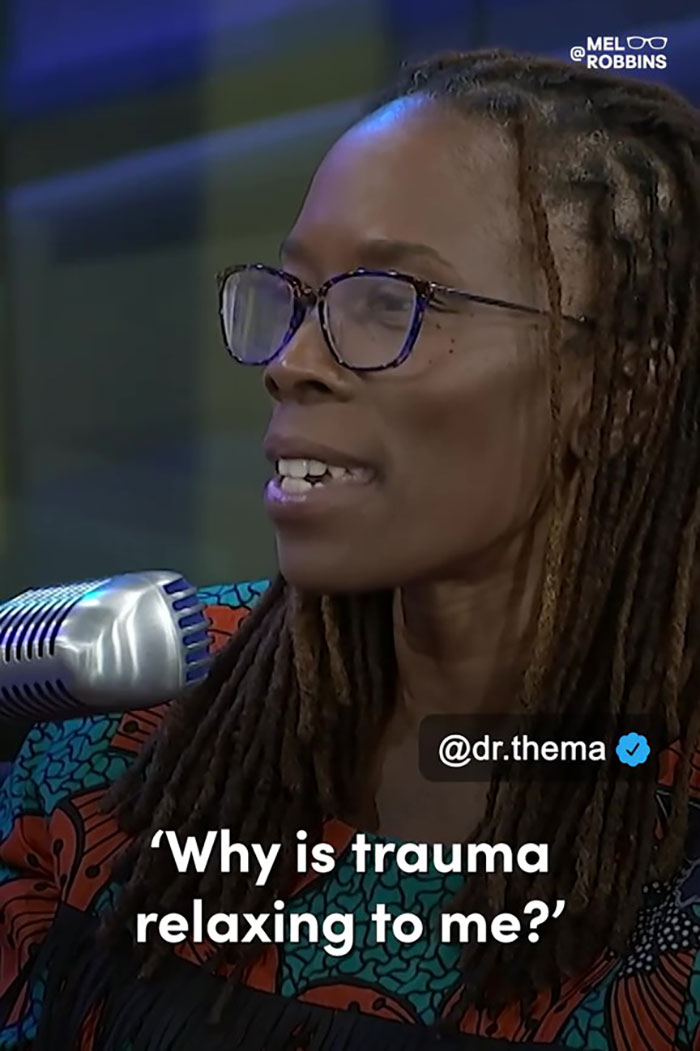
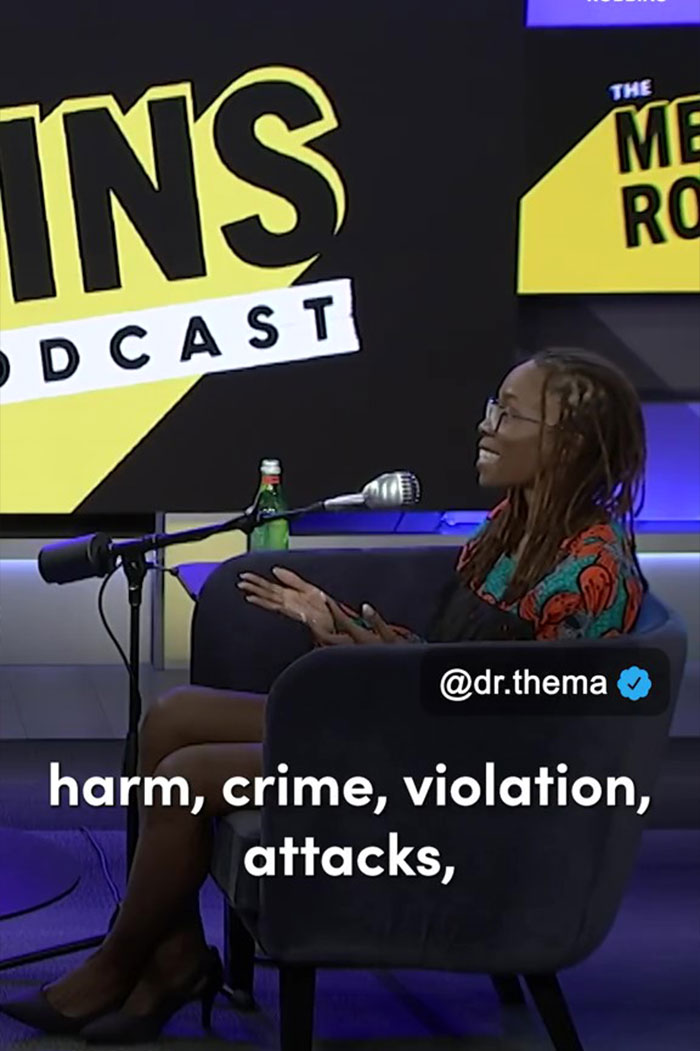
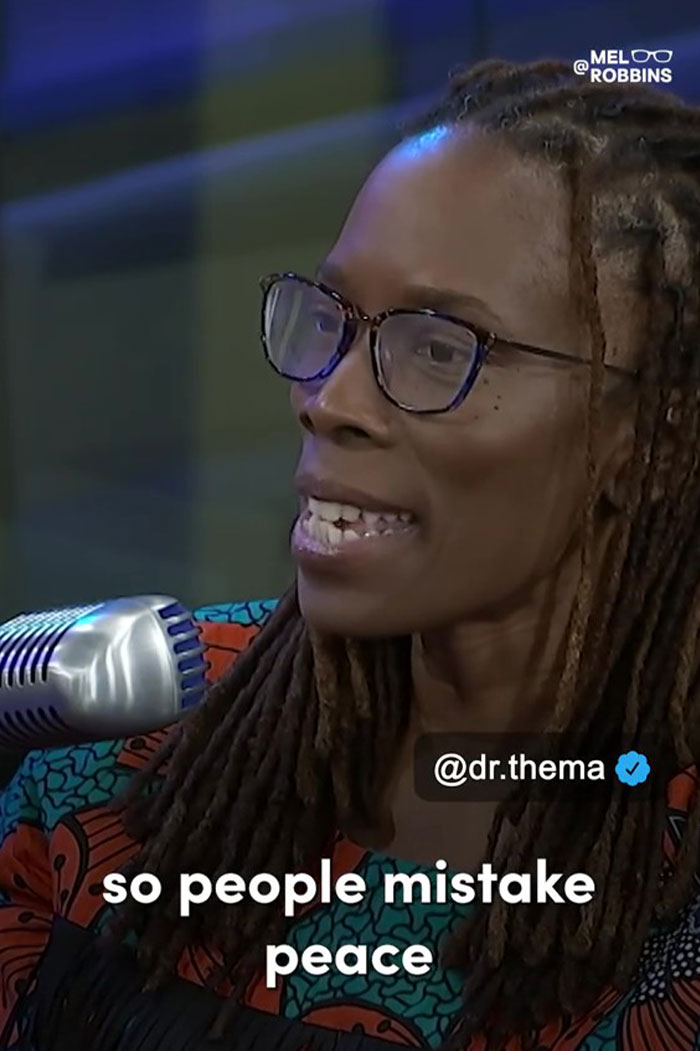
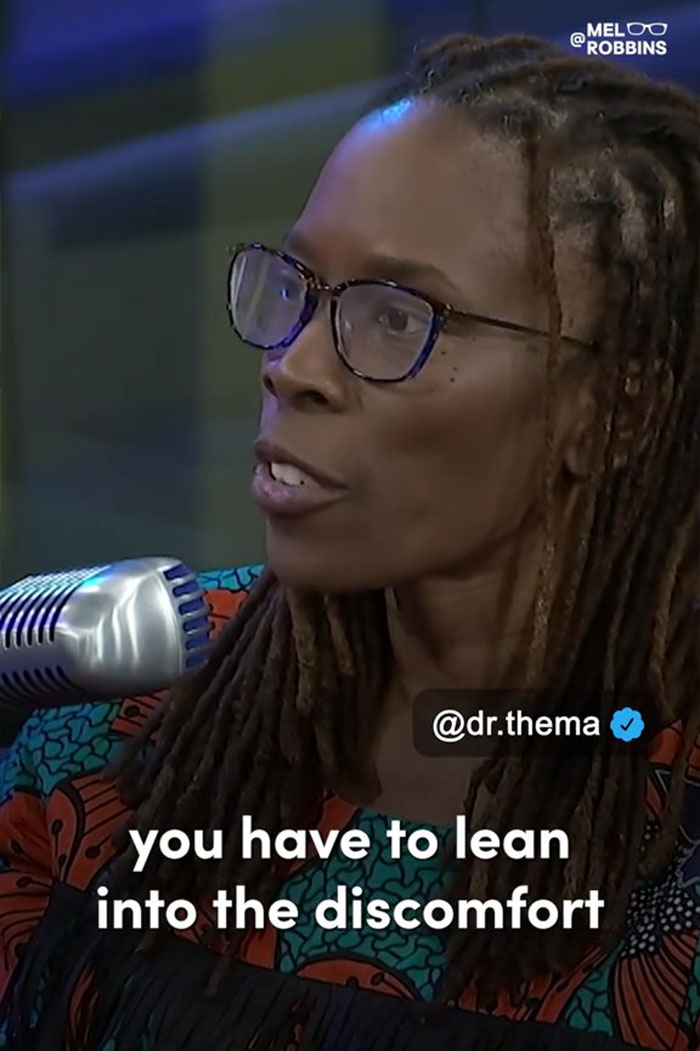


















32
88